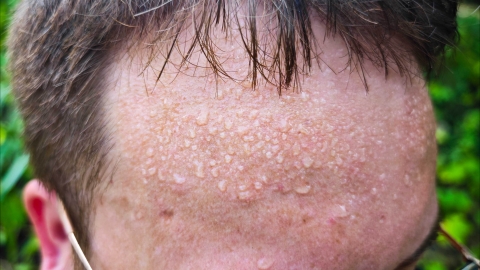What causes profuse sweating after fainting?
Generally, the causes of profuse sweating after fainting may include postural changes, excessive fatigue, stress response, hypoglycemia, arrhythmia, etc. Symptomatic management through general treatment and medication may be needed. If discomfort occurs, it is recommended to seek timely medical attention and receive appropriate treatment under a doctor's guidance. Detailed analysis is as follows:

1. Postural Changes
Remaining standing for prolonged periods or sudden changes in posture can lead to orthostatic hypotension, causing insufficient blood supply to the brain and resulting in fainting. After fainting, the body may attempt to restore blood pressure balance by sweating to increase blood volume, often accompanied by symptoms such as dizziness and visual blurring. It is recommended to adjust dietary structure, increase salt intake, and engage in appropriate exercise to improve cardiovascular function.
2. Excessive Fatigue
Excessive fatigue may lead to decreased physical function, including impaired cardiovascular and nervous system performance. In extreme fatigue, fainting may occur, and afterward, the body might sweat to regulate the internal environment and restore balance, often accompanied by fatigue and low spirits. When fainting occurs, the patient should immediately lie down to rest and replenish adequate fluids and electrolytes.
3. Stress Response
During sudden conditions such as fainting, the human body may trigger a stress response, releasing hormones like adrenaline, which can cause rapid heartbeat, elevated blood pressure, and profuse sweating. After fainting, the patient should be laid flat with legs elevated, maintain steady breathing, and avoid excessive tension and anxiety.
4. Hypoglycemia
Hypoglycemia mainly results from inadequate food intake or excessive blood sugar reduction. When blood glucose levels drop below the normal range, the brain's energy supply is affected, possibly leading to fainting. Additionally, hypoglycemia stimulates the secretion of adrenaline, causing increased sweating, often accompanied by symptoms such as dizziness, palpitations, and tremors. Immediate glucose supplementation is recommended, and medications such as glucose and sodium chloride injection, hydrocortisone tablets, and mannitol injection should be used according to medical advice to alleviate symptoms.
5. Arrhythmia
Abnormal cardiac electrophysiology or cardiovascular diseases may cause arrhythmia. Arrhythmia can impair the heart's pumping function, reducing cerebral blood supply and causing fainting. Additionally, cardiovascular disease may lead to autonomic nervous system dysfunction, causing increased sweating, often accompanied by chest pain, palpitations, and shortness of breath. It is recommended to take medications such as propafenone hydrochloride tablets, atropine sulfate injection, and metoprolol tartrate tablets under medical guidance.
If someone experiences profuse sweating after fainting, bystanders should disperse to ensure air circulation, and the patient's head should be turned to one side to prevent airway obstruction from vomit and subsequent suffocation.




